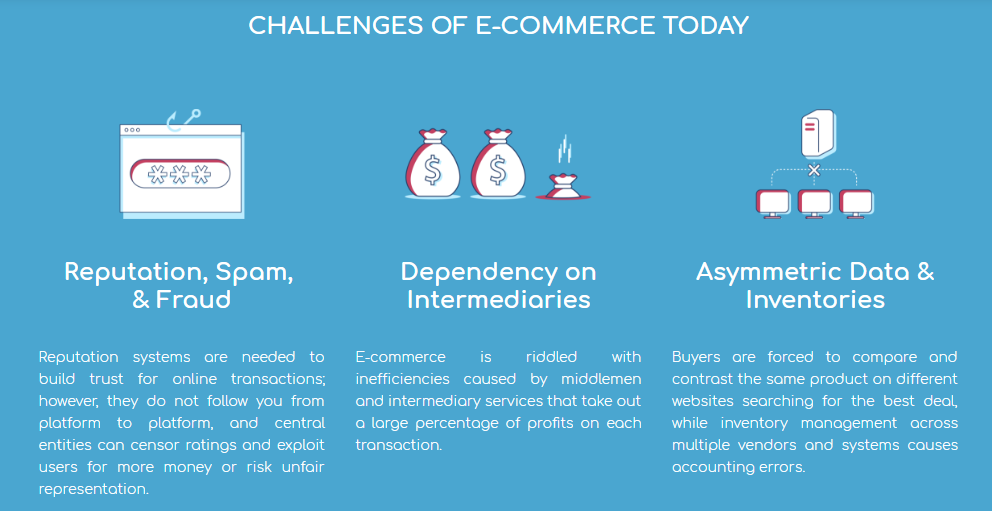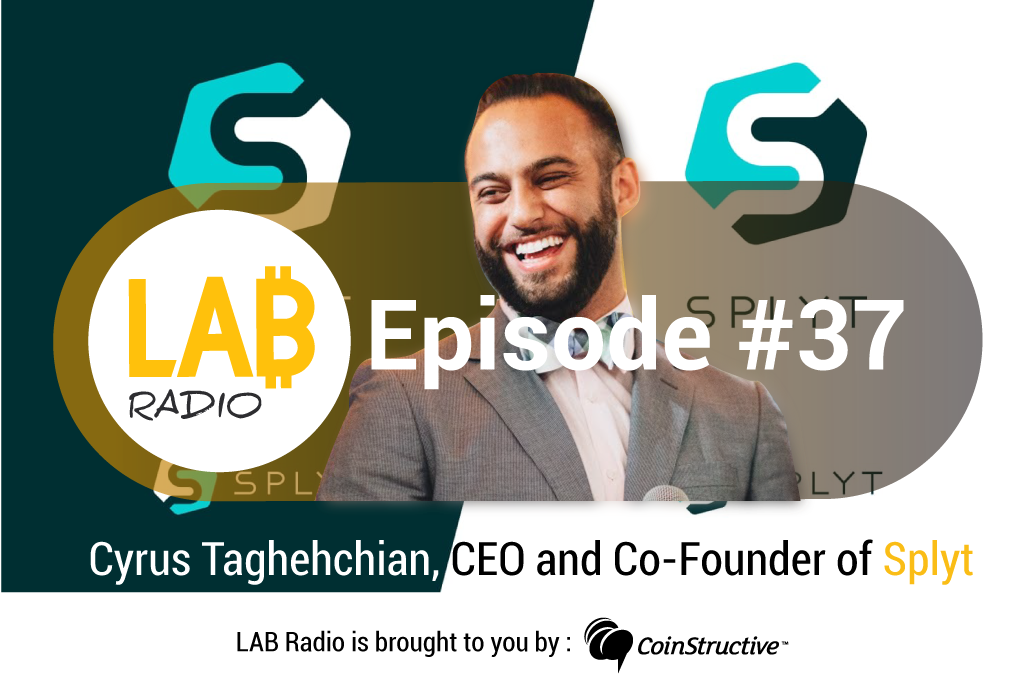In this episode of LAB Radio, Aaron Mangal discusses Spl.yt, a decentralized marketplace protocol, with CEO and founder Cyrus Taghehchian.

Cyrus Taghehchian, CEO and Founder at Spl.yt
Cyrus Taghehchian is the co-founder and CEO of Spl.yt, a decentralized marketplace protocol. Cyrus, a Deloitte Consulting alum, is a world-class consultant, co-active coach and Lean-Agile thought leader who has helped C-level and executives improve their organizations’ product management processes, development practices, and team culture at companies such as Intel, Bank of America, Paypal, and more.
A serial entrepreneur at heart, Cyrus specializes in technology strategy and implementations in the e-commerce and digital marketing space, including leading his previous companies through product and market fit phases. Cyrus entered the blockchain space in 2015, having taken several notable active involvements, collaboration and advisory roles within the blockchain community where he applies his unique business development perspective, to promote blockchain and distributed ledger technology.

Spl.yt, a Decentralized E-commerce Protocol, Global Inventory and Affiliate Network
According to the Spl.yt litepaper: “Spl.yt provides the market reach of Alibaba and CJ Affiliate, with the assurance of
Amazon, at the no-cost prices of Craigslist”
This is based on their global inventory and logistics system which allows retailers to connect with several marketplaces, not just one, which greatly reduces the labor and management behind multiple postings.
It goes on to further explain how retailers can connect with their platform: Spl.yt’s core function begins when an online retailer connects our easy-to-use SDK to load its inventory onto the blockchain. Once on the blockchain, Spl.yt’s smart contract grants access to all other participating marketplaces…Spl.yt uses token economics to promote fair and reliable participant
behaviors. Spl.yt’s global reputation system provides peace of mind that reviews and ratings (necessary for buyers to trust retailers) are performed fairly without censorship or manipulation, and reflect behavior across the internet (rather than one website).

How Splyt Connects Buyers and Sellers
Splyt also has a dispute resolution for their decentralized marketplace to take care of any problems that arise from transactions through intermediaries called Validators. These are real people that help figure out any issues whether on the buyer or seller side.
Finally, through an affiliate system sellers can leverage an automated way to manage and pay out commissions to affiliates for helping to sell products.
We hope you enjoy the conversation.
After listening to this episode you will learn:
- About the origin story of how Cyrus went from Consulting into the Blockchain world
- How consultants think, work and create value for clients
- Why great consultants replace themselves in the long-term
- Why people are a super important often overlooked part of building a successful company
- What Splyt is and how it works as a decentralized marketplace protocol
- The way that Splyt increases the reach of a posting across several major marketplaces
- A unique affiliate system that incentivizes anyone helping sell any product in the marketplace
- How Sellers can download the Splyt SDK and access a global database of inventory
- About Decentralized Autonomous Initial Coin Offerings (DAICOs) and one called HAIKU that Splyt is building
- The Affiliate system behind Splyt and how it evolves the current Affiliate model
- How Splyt handles dispute resolutions and leverages tokenomics to incentivize behavior
Further Reading and Resources
- Cyrus on LinkedIn
- Spl.yt Website
- What is a Decentralized Autonomous Initial Coin Offering (DAICO)?
- What is Affiliate Marketing?
- Alternative Dispute Resolution Definition
Cyrus on the Future Tech Podcast:


